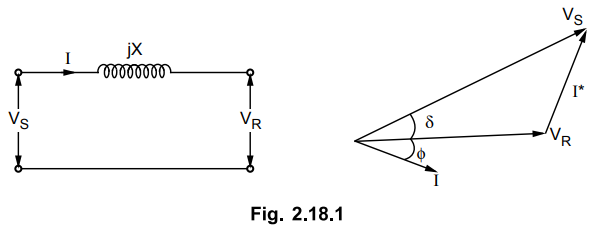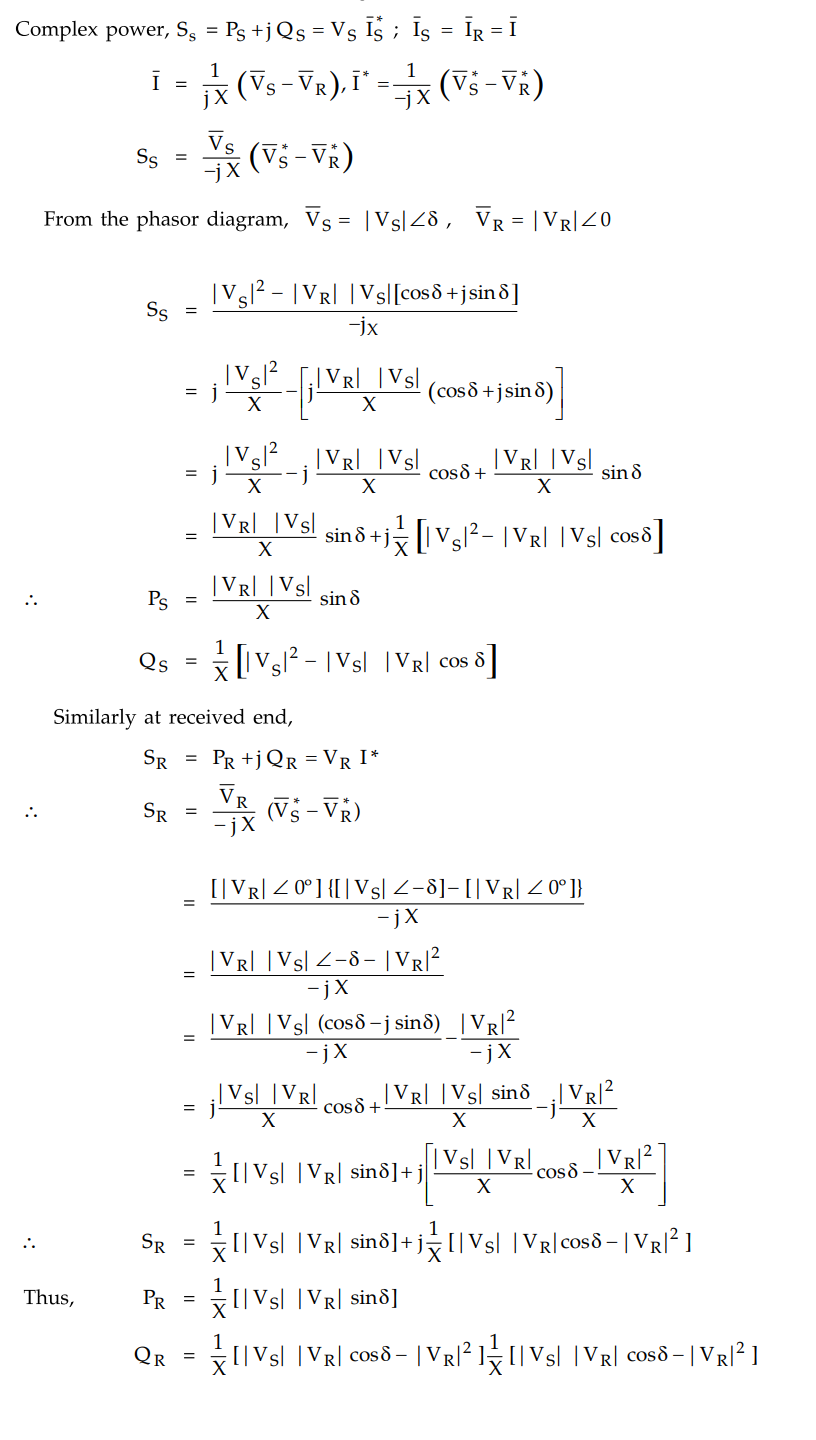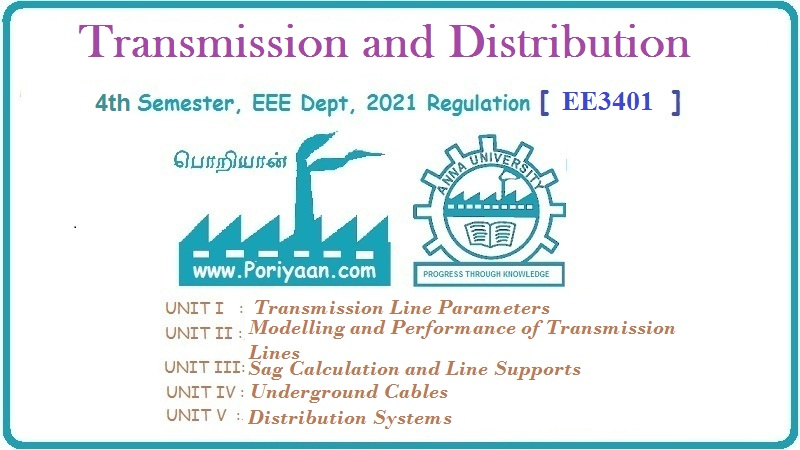Transmission and Distribution: Unit II: (a) Modelling and Performance of Transmission Lines
Active and Reactive Power Flow
Modelling and Performance of Transmission Lines
The flow of active power (P) and the reactive power (Q) through transmission system has influence on voltage magnitudes and phase difference of voltages at terminals and voltage along the line.
Active and Reactive Power
Flow
AU : May-15, Dec.-16
The flow of active power (P) and the
reactive power (Q) through transmission system has influence on voltage
magnitudes and phase difference of voltages at terminals and voltage along the
line. Now let us consider active and reactive power flow through short
transmission line.
Consider a short transmission line as
shown in Fig. 2.18.1. Neglecting shunt admittance and series resistance we get


From the above expressions it can be
seen that the transfer of real power P depends only on angle δ called the power
angle and not on relative magnitudes of sending end and receiving end voltages.
The transmitted power varies approximately to square of voltage level. When δ =
90°, maximum power is transfered.
PRmax = PSmax = |
VS | | VR | / X
If the system operates with δ = 0 then
average reactive power flow over the line is given as,

Thus reactive power flow depends on the
difference in squares of voltages. The voltages at sending and receiving end
are held within permissible limits by means of compensation of reactive power
which helps in improving steady state stability. In absence of reactive power
compensation instability in voltage occurs.
Hence in summary it can be stated that
active power flow is determined by power angle δ and the reactive power flow
determines voltage magnitudes. Both active power flow and magnitudes of Vs and
VR determine the stability of transmission line.
Review Question
1. Derive the expression for the real and reactive power flow
through transmission lines.
AU : May-15, Dec.-16, Marks 8
Transmission and Distribution: Unit II: (a) Modelling and Performance of Transmission Lines : Tag: : Modelling and Performance of Transmission Lines - Active and Reactive Power Flow
Related Topics
Related Subjects
Transmission and Distribution
EE3401 TD 4th Semester EEE Dept | 2021 Regulation | 4th Semester EEE Dept 2021 Regulation
